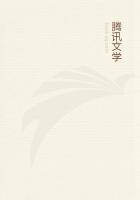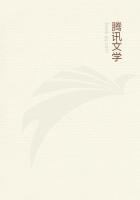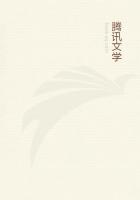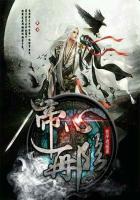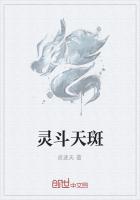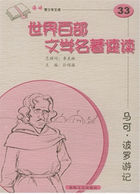All that, Socrates, appears to me to be true; but I should like to know what you think about another definition of temperance, which I just now remember to have heard from some one, who said, 'That temperance is doing our own business.' Was he right who affirmed that?
You monster! I said; this is what Critias, or some philosopher has told you.
Some one else, then, said Critias; for certainly I have not.
But what matter, said Charmides, from whom I heard this?
No matter at all, I replied; for the point is not who said the words, but whether they are true or not.
There you are in the right, Socrates, he replied.
To be sure, I said; yet I doubt whether we shall ever be able to discover their truth or falsehood; for they are a kind of riddle.
What makes you think so? he said.
Because, I said, he who uttered them seems to me to have meant one thing, and said another. Is the scribe, for example, to be regarded as doing nothing when he reads or writes?
I should rather think that he was doing something.
And does the scribe write or read, or teach you boys to write or read, your own names only, or did you write your enemies' names as well as your own and your friends'?
As much one as the other.
And was there anything meddling or intemperate in this?
Certainly not.
And yet if reading and writing are the same as doing, you were doing what was not your own business?
But they are the same as doing.
And the healing art, my friend, and building, and weaving, and doing anything whatever which is done by art,--these all clearly come under the head of doing?
Certainly.
And do you think that a state would be well ordered by a law which compelled every man to weave and wash his own coat, and make his own shoes, and his own flask and strigil, and other implements, on this principle of every one doing and performing his own, and abstaining from what is not his own?
I think not, he said.
But, I said, a temperate state will be a well-ordered state.
Of course, he replied.
Then temperance, I said, will not be doing one's own business; not at least in this way, or doing things of this sort?
Clearly not.
Then, as I was just now saying, he who declared that temperance is a man doing his own business had another and a hidden meaning; for I do not think that he could have been such a fool as to mean this. Was he a fool who told you, Charmides?
Nay, he replied, I certainly thought him a very wise man.
Then I am quite certain that he put forth his definition as a riddle, thinking that no one would know the meaning of the words 'doing his own business.'
I dare say, he replied.
And what is the meaning of a man doing his own business? Can you tell me?
Indeed, I cannot; and I should not wonder if the man himself who used this phrase did not understand what he was saying. Whereupon he laughed slyly, and looked at Critias.
Critias had long been showing uneasiness, for he felt that he had a reputation to maintain with Charmides and the rest of the company. He had, however, hitherto managed to restrain himself; but now he could no longer forbear, and I am convinced of the truth of the suspicion which I entertained at the time, that Charmides had heard this answer about temperance from Critias. And Charmides, who did not want to answer himself, but to make Critias answer, tried to stir him up. He went on pointing out that he had been refuted, at which Critias grew angry, and appeared, as I thought, inclined to quarrel with him; just as a poet might quarrel with an actor who spoiled his poems in repeating them; so he looked hard at him and said--Do you imagine, Charmides, that the author of this definition of temperance did not understand the meaning of his own words, because you do not understand them?
Why, at his age, I said, most excellent Critias, he can hardly be expected to understand; but you, who are older, and have studied, may well be assumed to know the meaning of them; and therefore, if you agree with him, and accept his definition of temperance, I would much rather argue with you than with him about the truth or falsehood of the definition.
I entirely agree, said Critias, and accept the definition.
Very good, I said; and now let me repeat my question--Do you admit, as I was just now saying, that all craftsmen make or do something?
I do.
And do they make or do their own business only, or that of others also?
They make or do that of others also.
And are they temperate, seeing that they make not for themselves or their own business only?
Why not? he said.
No objection on my part, I said, but there may be a difficulty on his who proposes as a definition of temperance, 'doing one's own business,' and then says that there is no reason why those who do the business of others should not be temperate.
Nay (The English reader has to observe that the word 'make' (Greek), in Greek, has also the sense of 'do' (Greek).), said he; did I ever acknowledge that those who do the business of others are temperate? I said, those who make, not those who do.
What! I asked; do you mean to say that doing and making are not the same?
No more, he replied, than making or working are the same; thus much I have learned from Hesiod, who says that 'work is no disgrace.' Now do you imagine that if he had meant by working and doing such things as you were describing, he would have said that there was no disgrace in them--for example, in the manufacture of shoes, or in selling pickles, or sitting for hire in a house of ill-fame? That, Socrates, is not to be supposed: but I conceive him to have distinguished making from doing and work; and, while admitting that the making anything might sometimes become a disgrace, when the employment was not honourable, to have thought that work was never any disgrace at all. For things nobly and usefully made he called works; and such makings he called workings, and doings; and he must be supposed to have called such things only man's proper business, and what is hurtful, not his business: and in that sense Hesiod, and any other wise man, may be reasonably supposed to call him wise who does his own work.

